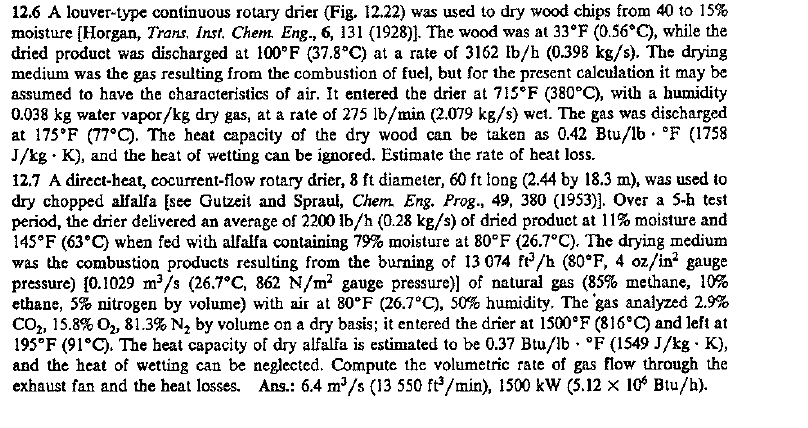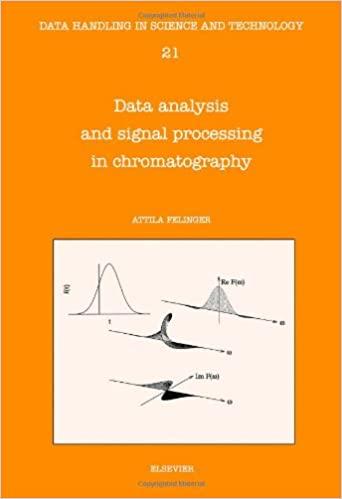Answered step by step
Verified Expert Solution
Question
1 Approved Answer
Solve all with correct explanation otherwise il will dislike 12.6 A louver-type continuous rotary drier (Fig. 12.22) was used to dry wood chips from 40

Solve all with correct explanation otherwise il will dislike
12.6 A louver-type continuous rotary drier (Fig. 12.22) was used to dry wood chips from 40 to 15% moisture (Horgan, Trams, inst. Chem. Eng., 6, 131 (1928)]. The wood was at 33F (0.56C), while the dried product was discharged at 100F (37.8C) at a rate of 3162 lb/h (0.398 kg/s). The drying medium was the gas resulting from the combustion of fuel, but for the present calculation it may be assumed to have the characteristics of air. It entered the drier at 715F (380C), with a humidity 0.038 kg water vapor/kg dry gas, at a rate of 275 lb/min (2.079 kg/s) wei. The gas was discharged at 175F (77). The heat capacity of the dry wood can be taken as 0.42 Btu/1b F (1758 J/kg .K), and the heat of wetting can be ignored. Estimate the rate of heat loss. 12.7 A direct-heat, cocurrent-flow rotary drier, 8 ft diameter, 60 ft tong (2.44 by 18.3 m), was used to dry chopped alfalfa (see Gutzeit and Spraul, Chem. Eng. Prog., 49, 380 (1953)]. Over a Sab test period, the drier delivered an average of 2200 lb/h (0.28 kg/s) of dried product at 11% moisture and 145*F (63) when fed with alfalfa containing 79% moisture at 80F (26.7C). The drying medium was the combustion products resulting from the burning of 13 074 ft /h (80F, 4 oz/ina gauge pressure) (0.1029 m/s (26.7C, 862 N/m2 gauge pressure)] of natural gas (85% methane, 10% ethane, 5% nitrogen by volume) with air at 80F (26.7C), 50% humidity, The gas analyzed 2.9% CO2, 15.8% 0, 81.3% N, by volume on a dry basis; it entered the drier at 1500F (816C) and left at 195F (91C). The heat capacity of dry alfalfa is estimated to be 0.37 Btu/lb F (1549 J/kg .K), and the heat of wetting can be neglected. Compute the volumetric rate of gas flow through the exhaust fan and the heat losses. Ans.: 6.4 m/s (13 550 ft/min), 1500 kW (5.12 X 10Blu/b). 1Step by Step Solution
There are 3 Steps involved in it
Step: 1

Get Instant Access to Expert-Tailored Solutions
See step-by-step solutions with expert insights and AI powered tools for academic success
Step: 2

Step: 3

Ace Your Homework with AI
Get the answers you need in no time with our AI-driven, step-by-step assistance
Get Started


